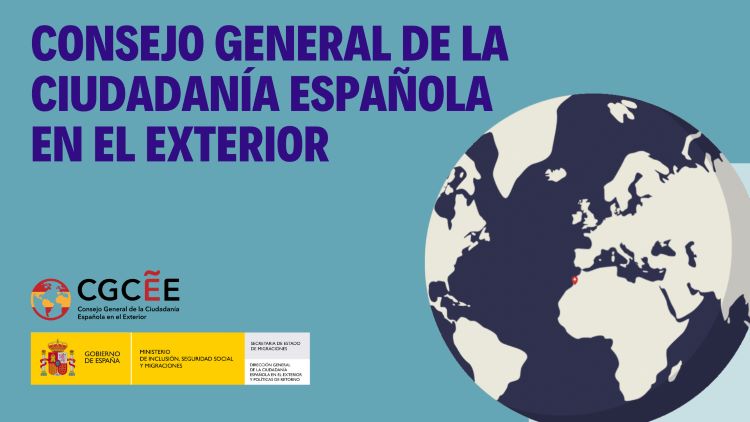Eduardo González
The General Council of Spanish Citizens Abroad (CGEE) and the Comisiones Obreras union have expressed their rejection of the increase in consular fees proposed by the Association of Spanish Diplomats (ADE).
On May 26, the ADE presented a proposal to improve the financing of the Spanish consular network and, therefore, to alleviate the “persistent deterioration” it has suffered “for years due to insufficient budgets to meet the continuous increase in demand for consular services.”
Among these measures, the Association proposed a possible increase in consular fees in order to “ensure that the public treasury does not lose current income from the consular network” and with the aim of ensuring that “the Ministry of Foreign Affairs has the necessary funding without the Treasury seeing its historical consular income diminished.” “There is ample room for this, as the comparative study also showed that the average level of fees in all the countries analyzed was much higher than the fees in force at Spanish consular offices,” the ADE added.
“While we share the concern about the deterioration of the consular network and the urgent need to strengthen it with more human and material resources, we strongly reject placing the burden on Spanish citizens residing abroad, through the establishment of new fees or the increase of existing ones,” the CGCEE, which reports to the Ministry of Inclusion, Social Security, and Migration, stated in a statement.
“This proposal,” it continued, “clearly discriminates against Spanish citizens abroad, by seeking to impose fees for services that are free or significantly lower in Spain.”
Therefore, it warned, the proposal violates the principle of equality enshrined in the Spanish Constitution and the Statute of Spanish Citizenship Abroad, which establishes the obligation to guarantee Spanish citizens residing abroad “the exercise of their constitutional rights and duties on equal terms with Spaniards residing in Spain.”
“Imposing additional fees on those who already face geographical, administrative, and economic barriers to accessing consular services is a form of institutional exclusion,” the General Council declared. “The solution to the structural problems of the consular network cannot be to penalize those who depend on it,” it added.
The CGCEE also warned that this proposal “could lead some citizens to choose to avoid procedures at consulates general, either by postponing them or by carrying them out in Spain if they are able to travel, which introduces inequality based on economic capacity and mobility. This situation could generate counterproductive effects in the medium and long term.” For all these reasons, the General Council urged the Cortes Generales (Spanish Parliament) and the Government to reject the proposal and to work “on improving the consular network with solutions that respect the rights of all citizens, regardless of their place of residence.”
CCOO
For its part, the State Union Section of the Foreign Service of the Workers’ Commissions (CCOO) warned, in a statement, that “these types of measures constitute a neoliberal prescription that places the costs of an essential public service, weakened by decades of institutional neglect and abandonment, on the population.”
“It is outrageous that those who have managed the foreign network for years (and contributed to its deterioration) now intend to make citizens pay for basic rights such as access to documentation or consular procedures, even more so when this same network has been the subject of repeated complaints by this union organization, without the ADE raising its voice until the Labor Inspectorate ordered the closure of the Consulate in Mendoza due to structural risks to the staff and the public. Where was their concern then?” the union denounced.
“In the face of this elitist view, at CCOO-Exterior we clearly defend that the Foreign Service cannot sustain itself by charging more to those who have less, and even less so in a context of growing precariousness, global inflation, and deteriorating public services,” it added.
“More than three million Spanish people live outside our borders. During the pandemic, it was the workers of embassies, consulates, counselors, and sectoral offices abroad who guaranteed their protection, repatriation, healthcare, and basic documentation. And they did so under extremely difficult conditions: with reduced staff, frozen salaries, and dilapidated buildings,” it continued.
“The problem of the Foreign Service is not one of consular income: it is one of political will. It is the State that must guarantee sufficient funding for the foreign public service to function, with criteria of equity, dignity, and social justice. Increasing fees is not modernization: it is privatization. And we say it loud and clear: turning deterioration into an excuse to burden citizens with the cost of institutional neglect is not a solution; it is a trap,” it warned.
The union also noted that staffing levels at embassies and consulates have barely increased by two percent since 2009, despite the fact that the Spanish population residing abroad has doubled in the same period, reaching three million people.
This imbalance, caused by a “lack of foresight and political will,” has “serious consequences” for “the world’s main consular offices (London, Havana, Paris, Buenos Aires, Mexico City, and Caracas),” which are facing “an increasingly unsustainable workload, aggravated by new obligations arising from state policies, such as the Democratic Memory Law or the issuance of visas, which exceeded 1.3 million in 2023 alone,” the CCOO denounced.
